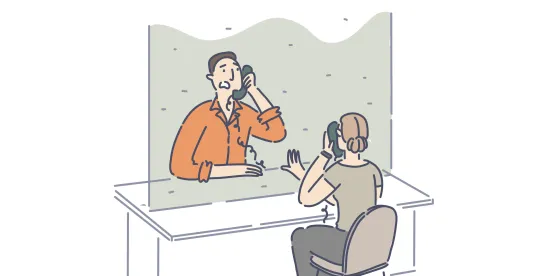Hi TCPAWorld! Once upon a time, I used to receive TONS of calls from Securus that, at the time, I honestly never considered as being illegal. And well…I doubt I was incorrect in that belief.
In Gena Alexander v. Securus Technologies, LLC, filed in the Middle District of Florida, the plaintiff alleges that she received prerecorded telemarketing calls without her prior express written consent amongst other TCPA violations. But what makes this case particularly interesting is the context in which these calls were made—specifically, the involvement of inmate-initiated calls through the services provided by Securus Technologies.
The TCPA is clear in its prohibition against unsolicited prerecorded voice calls made without prior express consent. In this case, the plaintiff alleges that Securus Technologies made multiple unsolicited prerecorded calls promoting their “phone call services” to a phone number registered on the National Do Not Call Registry. Now nowhere in the complaint does it mention that the calls were jail calls. So maybe they were not..,BUT if they were jail calls…the real question would be whether these calls, often initiated by inmates, should be treated differently under the TCPA.
Incarcerated individuals have limited means of communication, and services like those provided by Securus Technologies are often their only link to the outside world for many. The question here is whether these calls, initiated from within the confines of a correctional facility, carry the same TCPA implications as typical telemarketing calls. Historically, courts have scrutinized telemarketing calls differently based on context, but the TCPA does not carve out an explicit exception for calls made by or on behalf of inmates.
Well, Smith v. Securus Techs., Inc., 120 F. Supp. 3d 976, 982 (D. Minn. 2015), already addressed this and held that Securus “cannot be held liable, as a matter of law, for violating the TCPA” because it did not “make” the phone calls. No surprise there, and I don’t suspect a surprise here either.
Another significant issue is whether the inmate initiating the call could be deemed liable as the “call maker” under the TCPA. Generally, the liability under the TCPA falls on the entity that initiates the call or directs the call to be made. In this instance, Securus Technologies would typically be seen as the “call maker” because they are the service provider enabling the communication and allegedly using prerecorded messages to promote their services.
However, could an argument be made that the inmate, as the party initiating the communication, bears some responsibility? The answer largely depends on the level of control and intent behind the call. If the inmate simply utilizes a service provided by Securus without knowledge of or control over the telemarketing content, it would be challenging to assign TCPA liability to the inmate. On the other hand, if it could be demonstrated that the inmate was actively involved in the telemarketing process or benefited directly from it, there might be a basis for liability, albeit a tenuous one.
Anyway, just my thoughts on this case for now.
I’ll be keeping a very close eye on this one for sure!




 />i
/>i

